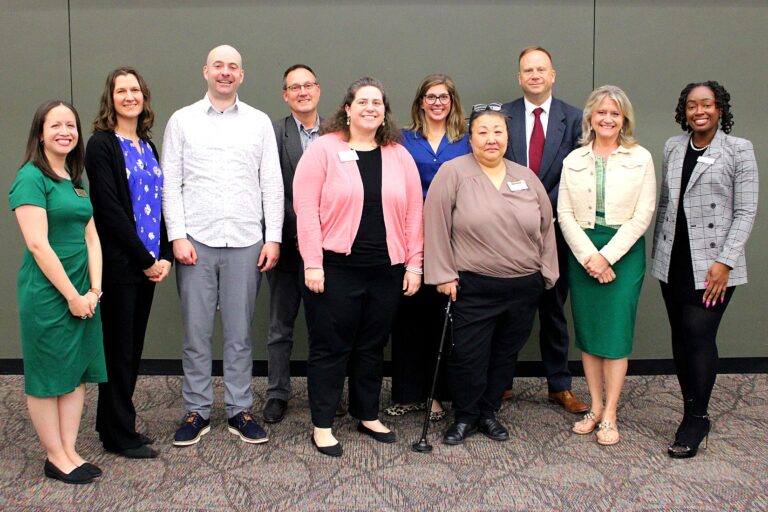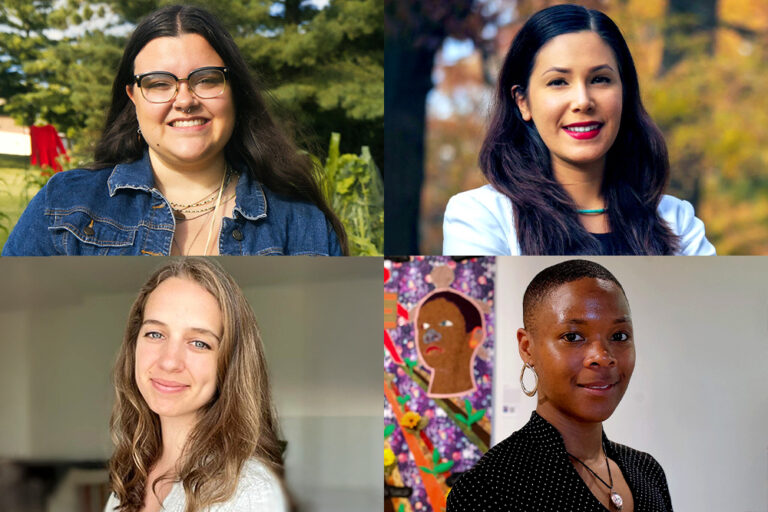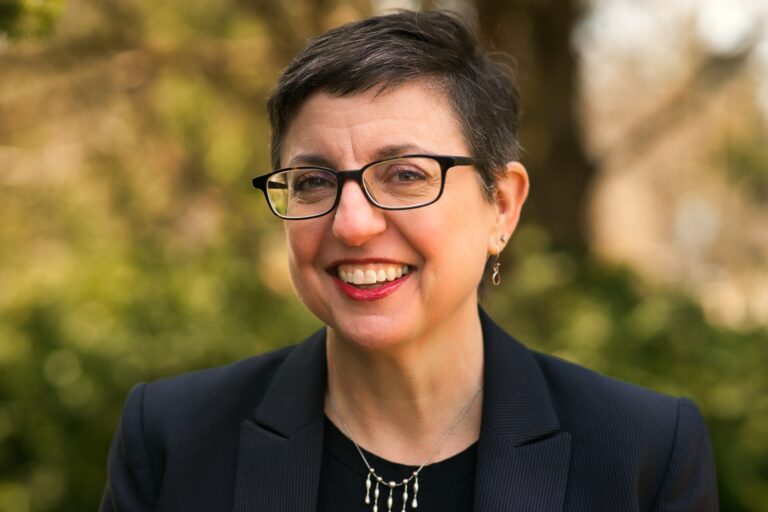Philosophical, scientific, spiritual and moral dimensions explored

Whether old houses, furniture, cars or even ourselves, the fact is: humans love to restore things. There are even competing TV shows about house restoration.
For Gretel Van Wieren, assistant professor in the Department of Religious Studies at Michigan State University, it begged the question: “Why not the environment?”
In response, Van Wieren developed and teaches an IAH seminar course, Human Culture, Ethics, and Nature, an introduction to Environmental Ethics. It is a multipronged approach to environmental ethics, religion and restoration of the environment. Coursework blends the philosophical with the scientific and the spiritual with the moral, and focuses on community organizing work to shape concrete practices that restore damaged landscapes.
“Providing a comparative worldview, the seminar introduces the work of modern, spiritual and ethical writers as well as new coursework in Religious Studies,” Van Wieren said.
Her Environmental Ethics seminar was not Van Wieren’s first direct exposure to the subject. Her 2013 book, Restored to Earth, provided the first comprehensive examination of the religious and ethical dimensions and significance of contemporary restoration practice. This resulted in an ethical framework to advance the field of environmental ethics in a more positive, action-oriented, experience-based direction.
In the book, Van Wieren brings together insights and examples from restoration ecology, environmental ethics, religious studies, and conservation and Christian thought, as well as her own personal experiences in ecological restoration, to propose a new restoration ethic grounded in the concrete, hands-on experience of humans working as partners with the land.
Interdiscipinary Approach
Similarly, her Religion and the Environment course is popular among students in the Department of Religious Studies Nonprofit Leadership concentration, and provides a viable career track for students, as well as an introduction to her and others’ work. It covers work related to for-profits, too.
“While most of the students in the concentration plan to work in the nonprofit sector,” Van Wieren says, “they come from a wide range of majors, including other departments within the College of Arts & Letters, various environmental disciplines, Business, and James Madison to name a few.”
“Dr. Van Wieren’s work exemplifies the land-grant interdisciplinarity that MSU has been encouraging,” said Arthur Versluis, chair of the Department of Religious Studies. “Her work involves many areas and departments across the university including Agriculture, Forestry, Environmental Philosophy, and others.”
Besides class sessions, Van Wieren says students learn about and visit a number of course-related entities such as university-wide environmental efforts at Michigan State. They also learn from guest speakers, key nonprofit leaders, including those from FoodPLUS|Detroit, a networked innovation coalition established to facilitate and accelerate implementation of innovative food, agriculture and related resources projects. The students’ senior theses have also involved interviews with faith communities engaged in environmental and agricultural activities.
“There is a definite difference between students now and when I began teaching at MSU six years ago” Van Wieren said. “And while those in my environment courses still include a handful of climate change deniers and others who are dismissive of the environmental movement, I’ve seen a positive shift in awareness and support for efforts to restore the environment.
“In fact, I was very pleased with the students’ final project this term. It was a major research paper, and their presentations were stellar. It sort of restores your faith in our future just a bit.”
About Gretel Van Wieren
Van Wieren received her M.Div. and Ph.D. in Religious Studies from Yale University and also holds a M.P.S. in International Development from Cornell University, and a B.A. in Political Science and Sociology from St. Olaf College. She has worked with community development organizations in Uganda and Kenya and for Bread for the World, an anti-hunger nonprofit organization based in Washington, D.C.


